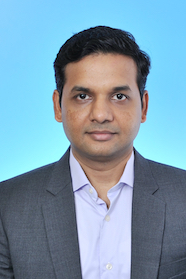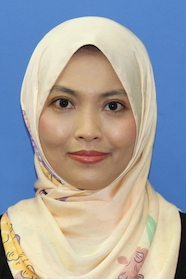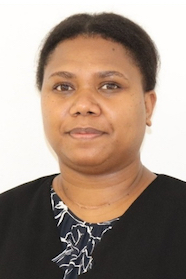Become a registered specialist paediatric dentist in New Zealand and Australia
What is Paediatric Dentistry?
Paediatric Dentistry is an age-defined speciality that provides comprehensive preventive and therapeutic oral health care for infants and children through adolescence, including those with special health care needs. It encompasses all dental care and may include management of caries, periodontal disease, trauma and/or growth problems and dentition and occlusal development. It also includes management of the dental problems for children who may have developmental, behavioural or medical disabilities, and care for some older patients who have disabilities.
DClinDent in Paediatric Dentistry
| Duration | 3 years full-time |
|---|---|
| Campus | Dunedin* |
* Near the end of your final year, you will complete a hospital placement under the supervision of a specialist paediatric dentist.
Skills you will learn and develop
The programme covers all aspects of specialist dental care for children and adolescents with some aspects of care for patients with special health care needs.
At the completion of the programme, you are expected to have developed the competencies and skills to enter practice as specialists in paediatric dentistry. You will have the skills to provide care for children and adolescents with complex dental and orofacial problems, and be able to work with, and advise, related health care professionals.
You will have developed competencies to conduct original research and perform clinical audit – to the level of being able to acquire funding and lead projects related to oral healthcare for children and adolescents.
Additional experience
You will be required to spend time in another paediatric dentistry unit or department attached to a hospital during the third year of the programme.
Royal Australasian College of Dental Surgeons
Following the successful completion and awarding of a DClinDent degree, a graduate may apply to the Royal Australasian College of Dental Surgeons (RACDS) and be awarded with a Membership to the College in Paediatric Dentistry (MRACDS(Paeds).
Why pursue a DClinDent in Paediatric Dentistry?
The following unedited feedback from our students offers some insight into the benefits of pursuing a DClinDent in Paediatric Dentistry at Otago:
- A well structured programme
- Evidence-based approach to oral health care of children and adolescents
- New and modern facilities
- Experienced and research active staff
- Good research support
- Opportunity to work in Emergency Department at the hospital
- Exposure to rarer conditions in paediatric dentistry
- Multidisciplinary approach
- Specialist registration
- Exit exams can contribute towards membership of the Royal Australasian College of Dental Surgeons
- Opportunity to attend and present at international conferences
- Defined patient group: infants, children and adolescents
- Clinical care
- Hospital based dental care
- Seminars allow students to develop presentation and effective communication skills.
- Work with anesthesiologist when children cannot cope
- Work with the orthodontist
- You get invited to become a member of professional bodies such as: Australasian Academy of Paediatric Dentistry; Australian and New Zealand Society of Paediatric Dentistry
- Exposure to hospital dentistry through placement in final year of programme
- Attend suitable professional development programmes at the University through HEDC and other disciplines
- Dunedin is New Zealand's student capital – a lovely city to live in and explore New Zealand's amazing landscapes and cultures
After course completion
This course prepares graduates for work in a specialist practice in paediatric dentistry or a specialist clinic in a hospital, and also opens up further opportunities to pursue a career in research and clinical academic positions.
As a graduate of this programme, you can register with the Dental Council of New Zealand and Australian Health Practitioner Regulation Agency (AHPRA), enabling you to practise in Australia and New Zealand as a Specialist Paediatric Dentist.
Upon graduating, you will be continuously supported by a strong alumni relationship, and be well prepared for specialty practice and teaching / research in a dental faculty.
Staff expertise
Associate Professor Mani Ekambaram
 Associate Professor Mani's research expertise is in remineralisation of early enamel caries lesions, enamel and dentine adhesion, molar incisor hypomineralisation (MIH), and paediatric oral health.
Associate Professor Mani's research expertise is in remineralisation of early enamel caries lesions, enamel and dentine adhesion, molar incisor hypomineralisation (MIH), and paediatric oral health.
Through his research, he has established a niche in experimental strategies for enhancing dentine bond durability, enhancing bonding to developmentally hypomineralised enamel, studying the remineralisation potential of various contemporary remineralisation agents on early enamel carious lesions. Additionally, his ongoing research projects are aiming at other novel experimental strategies to remineralise such lesions.
Associate Professor Mani's research interest also includes prevention, management of early childhood caries and qualitative studies in paediatric oral health.
Dr Noren Hasmun
 Dr Hasmun’s research focused on children with developmental dental defects particularly molar incisor hypomineralisation (MIH) and early carious lesions. Her main interests are the impact of having these enamel defects on children’s oral health related quality of life (OHRQoL) as well as aesthetic management of the enamel defects and early carious lesions. Currently she is involved in a multi-centre study evaluating the co-existing of other dental anomalies with MIH and supervised postgraduate research projects on remineralisation of early carious lesions, and oral health of children and adolescents with special needs.
Dr Hasmun’s research focused on children with developmental dental defects particularly molar incisor hypomineralisation (MIH) and early carious lesions. Her main interests are the impact of having these enamel defects on children’s oral health related quality of life (OHRQoL) as well as aesthetic management of the enamel defects and early carious lesions. Currently she is involved in a multi-centre study evaluating the co-existing of other dental anomalies with MIH and supervised postgraduate research projects on remineralisation of early carious lesions, and oral health of children and adolescents with special needs.
Dr Yvonne Golpak
 Dr Golpak is registered Paediatric Dental Specialist in New Zealand. She has a broad clinical experience in dental care of children. Yvonne was trained in New Zealand and worked as specialist in her home country, Papua New Guinea. She has established research interest in epidemiology of dental caries and its effects on children’s oral and general health. She also has a special interest in longitudinal research-based community preventive oral health strategies and dental care of medically compromised or special needs children.
Dr Golpak is registered Paediatric Dental Specialist in New Zealand. She has a broad clinical experience in dental care of children. Yvonne was trained in New Zealand and worked as specialist in her home country, Papua New Guinea. She has established research interest in epidemiology of dental caries and its effects on children’s oral and general health. She also has a special interest in longitudinal research-based community preventive oral health strategies and dental care of medically compromised or special needs children.
Course content: Year 1
CLDN 910 Clinical Research
The emphasis is on providing the student with education relating to basic research tools for thesis development. The student will be introduced to the research environment and will be expected to utilise the didactic teaching received to identify a research question and develop an experiment/study protocol. Where appropriate, the student will apply for research funding and/or ethics approval.
Assessment:
- Position paper outlining potential research
- Research proposal literature review
- Formal presentation of protocol
- Research protocol plus viva
CLDN 920 Clinical Practice
Students will complete clinically-based care with particular emphasis on integrating learning and acquisition of specialist paediatric dental knowledge and skills to apply in specialist paediatric clinical practice.
Assessment:
- Assignment 1
- Assignment 2 (ANZSP Postgraduate Essay Competition)
- Clinical case presentation 1
- Clinical case presentation 2
- Clinical practice through the year
- Clinical logbook (formative)
- Mid year mock written exam (formative)
- Written examination
- Clinical oral
Course content: Year 2
CLD9F Thesis Research, Clinical Research and Clinical Practice 2
The emphasis of this paper is on the students' research project, their theses, clinical research and clinical practice.
Assessment:
- Clinical practice through the year
- Assignment 1
- Clinical case presentation
- Clinical case presentation
- Clinical logbook (formative)
- Written paper (3 hours)
- Clinical oral
Course content: Year 3
CLD9F Thesis Research, Clinical Research and Clinical Practice 3
In Year 3 the students complete their research and thesis, while continuing to develop their clinical skills and knowledge of evidence based clinical practice.
Assessment:
- Thesis submission (pass required)
- Clinical case presentation
- Clinical practice through the year
- Clinical logbook plus clinical logbook viva
- Written exam (3 hours)
- Clinical viva
Entry requirements
To be eligible for admission to the programme, you should fulfill criteria for study at the University of Otago as listed in the current University Calendar. You should hold a primary dental qualification that is acceptable to the University. You need to be able to demonstrate a strong interest in your chosen speciality. You should be at a minimum two years post-graduation of your primary dental qualification.
Applications close on 31 May of the year prior to enrolment.
Admission to the DClinDent programme is provisional and shall be confirmed after achieving at least a B+ (75–79%) grade in each of the first-year papers (CLDN 910 and CLDN 920).
